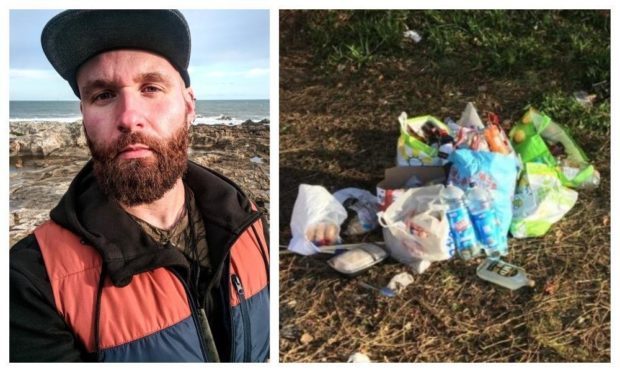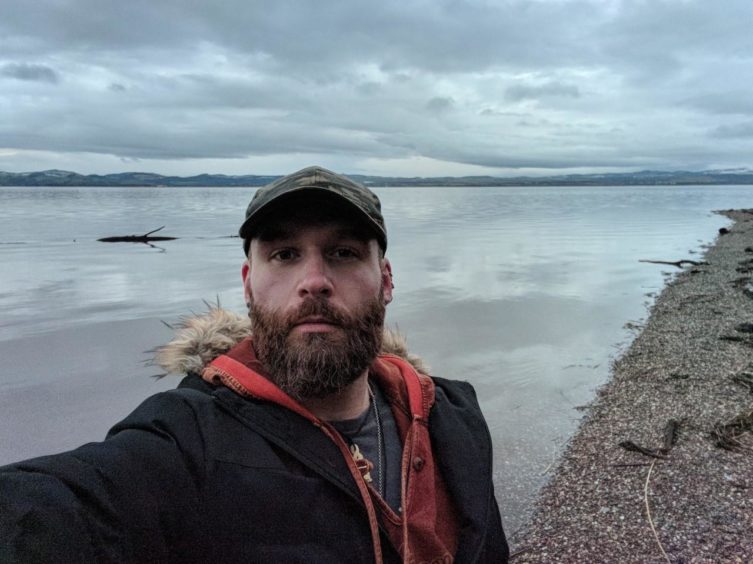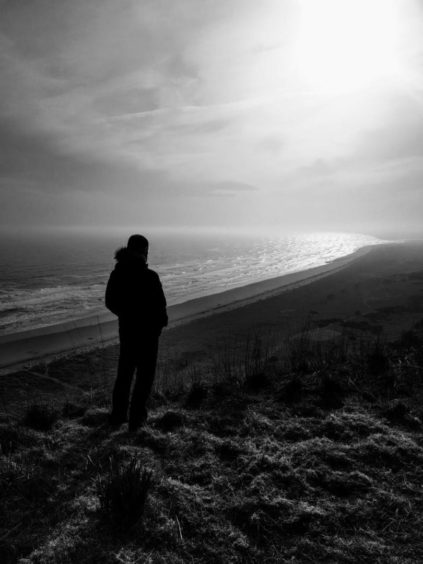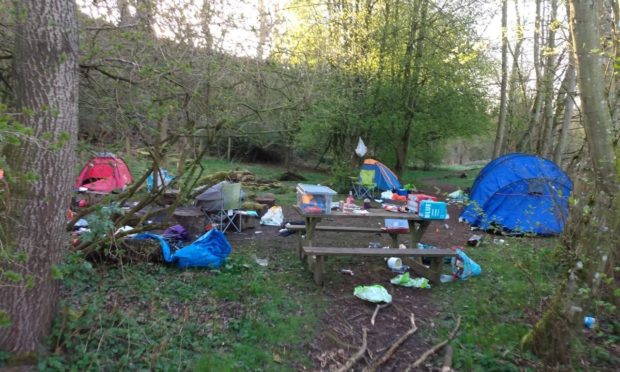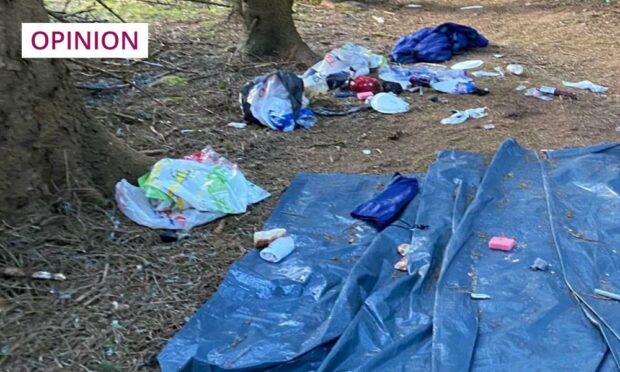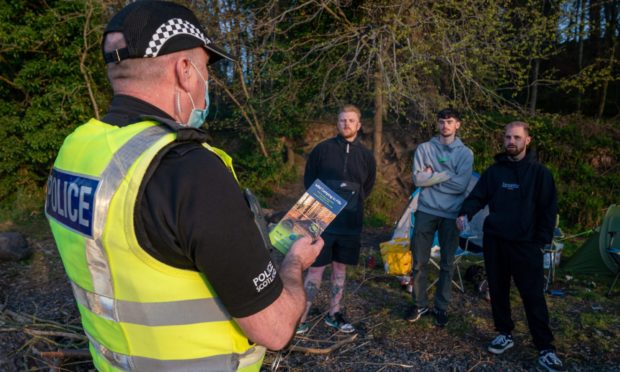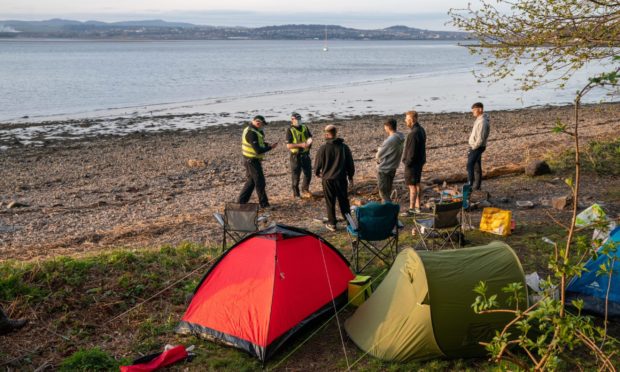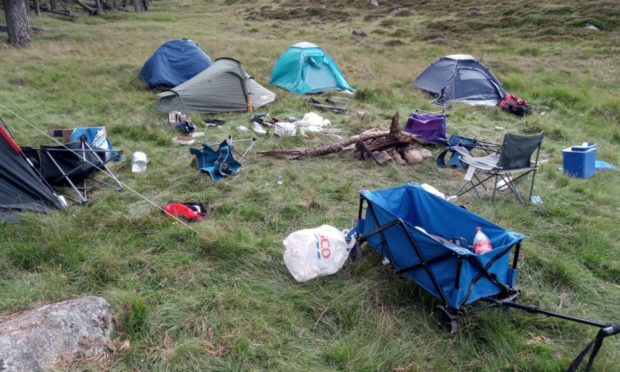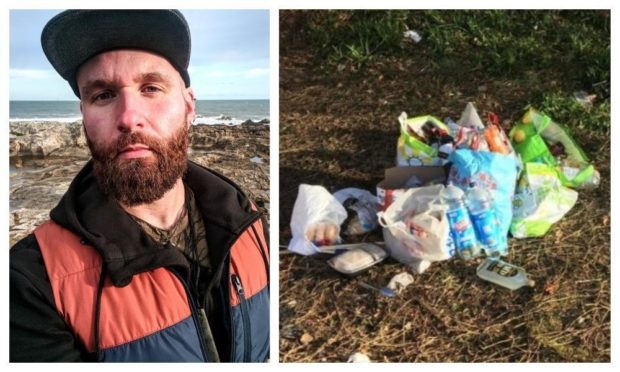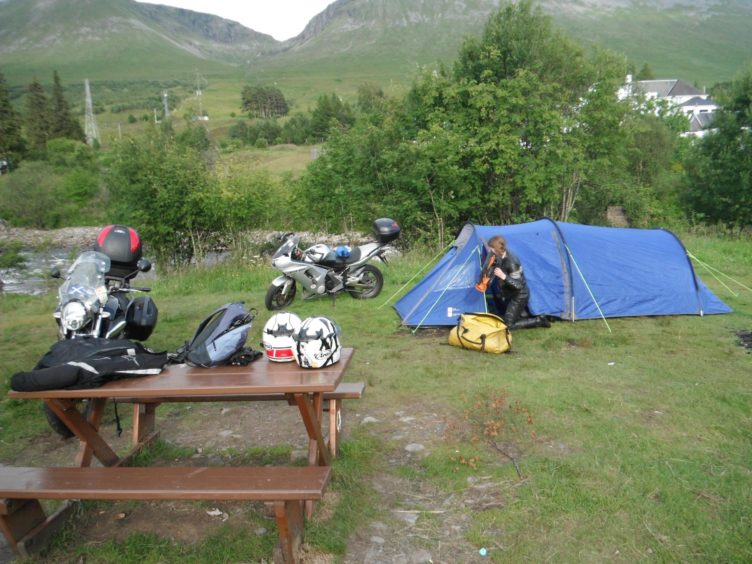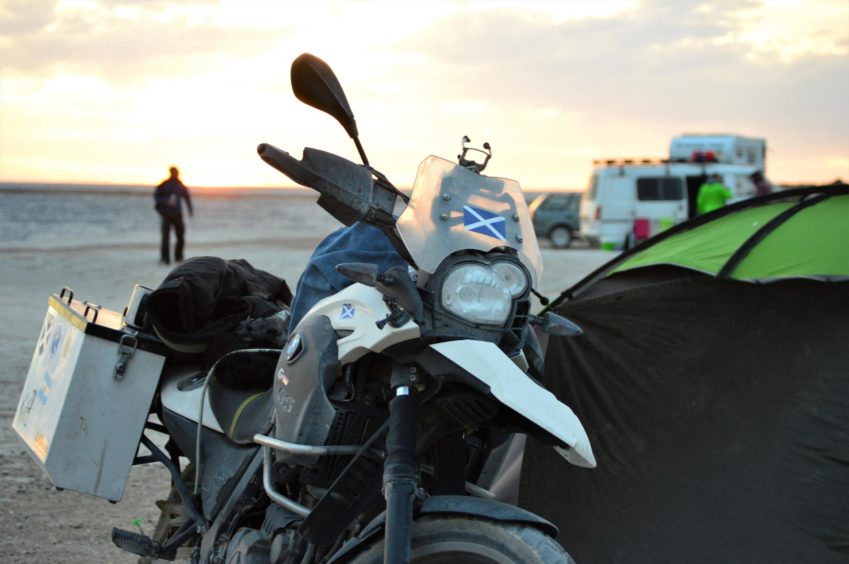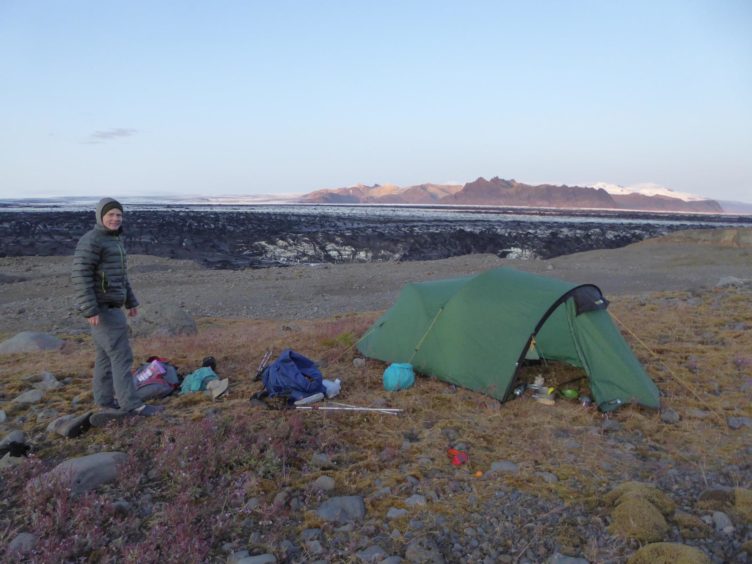Scotland should look abroad for measures to combat dirty camping, according to our readers.
A number of well-travelled local residents spoke to us about their concerns, including the suggestion that Scotland could follow Portugal and ban wild camping if problems aren’t resolved.
All agreed that leaders should look further afield for solutions to an issue that is likely to be a bone of contention this summer.
‘In New Zealand it’s well-managed’
The trip of a lifetime to New Zealand has helped give Steven Sinclair a firm view on how to combat the problem of dirty campers.
Steven, 33, of North Ellen Street, Dundee, is a keen environmentalist who despairs at seeing rubbish left by campers on his regular hikes.
Steven, who has a masters degree in natural hazard management, has been particularly dismayed at the mess left at Flisk Point, a popular spot in Fife overlooking the Tay between Balmerino and Newburgh.
“Once out walking we came across an abandoned campsite out there,” he says. “It creates a sense of frustration and anger.
“My friend lives in Newport and often walks in that area. He finds he has to spend a lot of time taking rubbish away.
“Local people also have had to go out on their free days to clean up after they have gone to restore the area to as pristine as it was before.”
Steven’s trip to New Zealand was memorable as well as instructive.
He describes the two islands as “Scotland on steroids” with lochs and mountains reminiscent of his homeland but on a grander scale.
Steven, who grew up in the Forfar area, was touring New Zealand between December 2019 and late April 2020.
He was fortunate enough to have spent the beginning of lockdown – his final five weeks – on board a static boat off the coast of Paihia in the very north of the north island.
And he saw at close quarters how the problem of nuisance camping was dealt with very differently in New Zealand.
In Scotland the Outdoor Access Code permits the right to roam across the entire country regardless of land ownership. This right extends to camping.
In New Zealand, no such right exists. Here, the government and councils run hundreds of inexpensive campgrounds in scenic spots, often in the wilderness. Many of these operate on a first-come, first-served basis.
Tourists can also ‘freedom camp’ in more than 500 locations across the country, but they have to be in a self-contained vehicle.
Enforcement against those who break the rules is also strict.
“In New Zealand it’s well-managed because residents got fed up with visitors abusing the countryside,” Steven says.
“They have very strict guidelines. We had to either be in a self-contained camper van or staying in a managed campground.
“I did 12 days in managed campgrounds and we had to pay 12 dollars a night.
“They are very strict and have a fining system in place. If you are ‘free camping’ and get caught you get fined.”
Stronger enforcement
Steven also says there are regular government patrols despite the large size of the country.
He believes campgrounds could work in Scotland if an overarching organisation was formed to coordinate the work of the many groups who work to protect and promote the nation’s countryside.
“If the Scottish Government had its own environmental organisation it could establish campsites on publicly owned land.
“In Scotland there were a huge number of organisations but there’s no one overarching environmental organisation that deals with enforcement.
“I would ideally like to see managed campgrounds permit families, infants and individuals to stay using a booking system or on a first-come first-served basis.
“The money they pay could be put back into keeping campground facilities such as toilets and showers clean.”
Steven, a customer service manager for an e-bikes scheme in Dundee, has designs on working in education and communications for an environmental organisation.
He believes better education is also crucial to defeat the scourge of dirty camping.
“We have two distinct parts of the population,” he says. “We have individuals who love the outdoors and will visit places while abiding by the Outdoor Access Code.
“They have an appreciation for the environment and take their litter with them, stick to paths and close the gates.
“A lot of these issues arise from youths and ‘townies’ with a blatant disregard for the environment.
“Part of the issue requires an education on why we need to look after our environment – predominantly in young people at school to tackle the issue in younger generations, so that they grow to love nature into their adolescence and adulthood.
“Campaigns, and current educational content is being achieved but it is, frankly, an echo-bubble for, and by those with a passion for the environment and outdoors.
“For example, much online engagement appeals to and reaches those who already enjoy the environment – those who follow social media and websites by organisations like John Muir Trust, Keep Scotland Beautiful, NatureScot and Scottish Wildlife Trust.
“Funding and legal backing is needed by environment-focused organisations to aid their working together, and also individually to target the audiences who haven’t tapped into nature-oriented organisations, social media and educational material.
“This is a slow process because it requires ‘marketing’ and outreach into these specific groups.”
Steven has a social media presence on Instagram (photography) (artwork), and Twitter
Fears of Portugal-type ban
Seasoned traveller Gino Rondelli fears that Scotland could soon be subject to a Portugal-style ban if dirty campers continue to harm the domestic landscape.
A new law has been in place in the Iberian country since January that expressly prohibits camping outside an official campsite. Police can now issue offenders with on-the-spot fines of between €250 and €600.
The government took action after complaints from locals in the south-west and Algarve about parking, rubbish, noise and self-built fireplaces.
Perth man Gino, who says he has visited 50 countries in the past 50 years, says: “When you look at Portugal and maybe soon Spain going down the route of making camping illegal outside designated spots, then the message needs to get out to the thousands of wild campers to get their house in order or freedoms can be taken away.”
Last summer Gino, a keen motorcyclist, stayed in organised camp sites in both Scotland and France and says the differences between the two were stark.
“In Scotland, about 50% of the sites didn’t allow people with tents because they closed the toilet facilities due to Covid. Unless you had a campervan or caravan you couldn’t stay there.
“It led to those people uneducated about the outdoors thinking they could go wild camping instead.
“Whereas in France they took a different approach. There is a huge camping culture down there and instead brought in extra cleaners to work most of the day and there were no problems.”
The French system was an aspiration even before Covid struck, Gino says.
“There’s not so much wild camping in France because official sites are dirt cheap.
“Almost all of these were municipal campsites run by the local council.
“In Perth we used to have a campsite in the Cherrybank area that was sold for housing, which was a short-sighted decision.
“In Scotland there are some very good campsites but they are becoming few and far between.
“Registered campsite owners need to do their bit by providing spaces for tents, not just vans and motorhomes.
“There also needs to be more council-run campsites in areas where there are no commercial sites.”
‘We need a Keep Scotland Tidy campaign’
Semi-retired Gino spent many years working for phone companies on mast design and installation.
His passion for travelling and motorcycling took him on an epic six-month tour of the Americas in 2012-13.
His motorbike was flown from Manchester to Buenos Aires where he and his wife began a ride that spanned Tierra del Fuego in the south and Alaska in the north before finishing in Miami more than 30,000 miles later.
“We need education,” he says. “Plenty of money is spent by the government on useless advertising campaigns but we need a ‘Keep Scotland Tidy’ campaign.
“The upsurge in cycling has seen huge amounts of money spent on infrastructure and advertising around cyclists safety. Likewise the huge upsurge in wild camping needs support.
“We also need legislation to make it less appealing to vandalise the countryside and a more robust system of park rangers to advise and deal with people who will not take advice.
“Basic facilities also need to be provided in areas prone to wild camping to minimise the risk of mess, dumpsters strategically placed, public toilets regularly cleaned.
“If the Scottish tourist board and their members, and ultimately the government through taxes, are going to benefit from tourism then they all need to step up to the plate and take responsibility before rural Scotland turns into a huge toilet.
“Ask any political party what their views are on this subject going forward and I guarantee that none of them have even thought about it.”
‘Just a patch of grass and reasonably priced’
The campsites in Iceland might have been basic but they offered a service lacking in Scotland.
That is what Dundee man Dominic Williams discovered when he visited The Land of Fire and Ice in 2016 and 2019.
The 33-year-old says: “In Iceland they had the same problem a few years ago as Scotland is having now with an increase in tourism.
“What I found was every village had a campsite. A lot of them were basic – a field with a toilet and hot water – but they were places you could stay.
“There are campsites in Scotland but they are not geared to the low end of the market.
“If you had to pay £10 for a night at a campsite that was staffed people might be more respectful and feel obliged to take their rubbish away.
“Whereas if people are just plotting up in the countryside they may not think they need to give anything back.”
Dominic, who works as a scientist, last camped in Switzerland in 2017 and has spent time camping in England’s Lake District.
“In Switzerland some sites are full of campervans from central Europe while others are just a patch of grass and reasonably priced. They don’t seem to have a problem with wild campers.
“In the Lake District a lot of farmers set up tiny campsites on small patches of grass. They are basic but they do the job.”
Dirty camping: Join our fight to protect Scotland’s great outdoors
